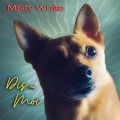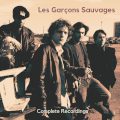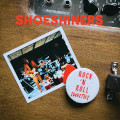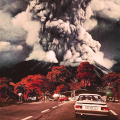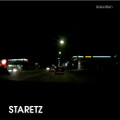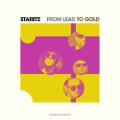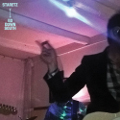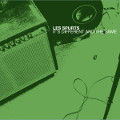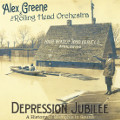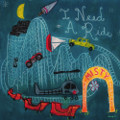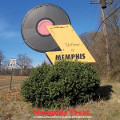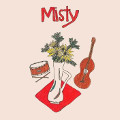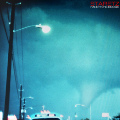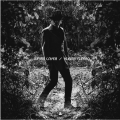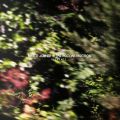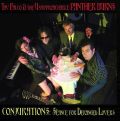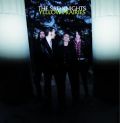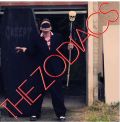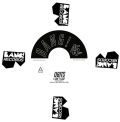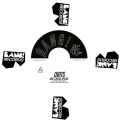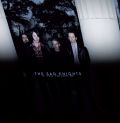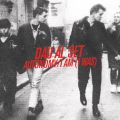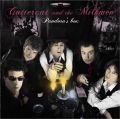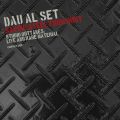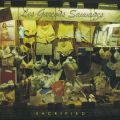Press
Author Robert Gordon included a sizeable segment about Tav Falco and the beginnings of his group Panther Burns in his acclaimed book on Memphis music, It Came From Memphis. Falco has formed a legendary reputation nationally and internationally over the past three decades since the formation of Tav Falco’s Panther Burns, releasing dozens of recordings, produced by the comrades, Jim Dickinson, and Perry Michael Allen of Hi Records.
Tav Falco first felt the twinges of musical inspiration growing up in rural Arkansas, where he was drawn to the rustic blues and jazz forms that abounded in the Mississippi Delta area. While working as a brakeman on the Missouri Pacific railroad, Falco would hop rides into Memphis -- where “music was just in the air,” He remembers hearing 1st generation country blues artists like Sleepy John Estes, Bukka White, Furry Lewis, Fred McDowell and Houston Stackhouse.
Falco later moved to Memphis, where he crafted avant-garde video documentaries of local musicians for the experimental TeleVista group. Around that time, he joined Jim Dickinson’s offbeat band Mud Boy & The Neutrons as a performance artist. “We would do these alternative theatrical art actions within the context of rock’n’roll shows," he recalls. “We were being hoisted up in harnesses and slung out over the audience and re-enacting scenes from William Burroughs involving shipwrecks, finger amputations and onstage explosions.”
Mud Boy eventually disbanded, but their free-for-all at Memphis’ Orpheum Theater would be Falco’s dramatic entry into the world of music making. Falco arrived with his battered Silvertone guitar (purchased from a neighbor for five dollars) on which he’d learned an odd, drone style from then obscure honky-tonk bluesman R.L. Burnside, and, between sets, he took the stage. “I was in evening clothes -- frock coat and tails, white tie and gloves -- and I had a chainsaw and an electric Skilsaw set up on two tables,” he remembers. He emerged alone, plugged in his guitar and launched into a gratingly distorted read of the old Leadbelly tune “Bourgeois Blues.” At the song’s frenzied climax, “I put the guitar down between the two tables, took the Skilsaw and ripped through it with that saw. People started screaming because it sounded like this industrial metal clanging-smashing- ripping sound, like a derailed freight train … and it was driving them crazy. Then I took out the chainsaw and finished the guitar off. The sound was horrendous and people were going completely hysterical in the audience. Then I passed out onstage and they had to drag me off. That was my first performance.”
Alex Chilton witnessed the mayhem, tracked Falco down and told him that a spiritual feeling had overtaken him during Falco’s performance. He encouraged Falco to start his own band, of which he would become a founding member and eventually produce. Taking the band’s name from a bit of local legend, the brutal slaying by fire of a panther that had terrorized a Mississippi plantation around the turn of the century, Falco found in Panther Burns an ideal conduit for “stirring up the dark waters of the unconscious and getting away from this sort of bourgeois realism that we all know.”
Playing in the Memphis cotton lofts -- wood-lined structures Falco likens to a guitar sounding box -- Panther Burns developed their own tone science and gut-bucket approach to fusing seemingly disparate musical forms. The unbridled Panther Burns shows, which often featured guests like rockabilly legend Charlie Feathers, became monumental, renegade events. Ever-committed to preserving indigenous music and furthering new and daring expression, in 1985 Falco and the Panther Burns founded Counter Fest, an annual festival showcasing the best and the worst of the Memphis arts underground. The band had quickly become a favorite in New York City, as well, where No Wave was emerging at the time. “All these bands were into this very ultra-cool bag and Panther Burns came in from Memphis with this really hot, incendiary music and we were accepted right away,” Falco remembers. “People really liked us because we represented that little pocket of antithesis.” Rough Trade Records enthused over the band, too, and released debut album Behind The Magnolia Curtain in 1981.
Twelve LP/EP releases and countless globe-trotting tours later, Falco moved to Europe, where he found his most embracing audiences, settling for a time in Vienna, and now in Paris. Though he sees some parallels between the river cities of Memphis and Vienna and Paris. The dramatic flair of his music has transmuted into film, landing Falco in moviemaking. In addition to his own expressionistic films, Falco appeared with Winona Ryder in the dubious 1989 Jerry Lee Lewis bio-flick Great Balls Of Fire and in 1993 portrayed the leader of a biker gang in the award-winning rock’n’roll road movie Highway 61, riding his own vintage Norton motorcycle.
Falco’s interest in Latin sounds has evolved into a devotion to tango-music, dance and lore -- which enjoys a certain popularity in Europe. Falco has become a tango dancer himself, regularly gliding in baroque ballrooms of Vienna’s many palaces and in the milongas of Paris and Buenos Aires. Falco describes tango’s intense allure: “Only with blues from the American South, a form with which tango shares certain thematic and tonal parallels, have I seen people moved with such dark power.”
Tango’s profound influence is evident in Falco’s albums, as woven through the Shadow Dancer record’s songs of unrequited love, betrayal, and lost causes. “It’s impossible to have any understanding of the future -- or to be in touch with the immediate present -- without having firsthand knowledge of the early musical forms and myths,” Falco says. “With Panther Burns, we call up the early myths and reach people on an orphic level.” As The New York Times has declared of unorthodox preservationist Falco, “(He is) a singer, guitarist and researcher of musical arcane who hasn’t let his increasingly technical expertise and idiomatic mastery compromise the clarity of his vision.”
Falco continues to perform with Panther Burns, appearing as a headliner at events like the Orange Evolution Festival in Newcastle, England,; also appearing in the It Came From Memphis series at The Barbican Centre in London in 2005. Falco’s films were also showcased in a “concert & flicks” event at Couvent des Ursulines in 2005. He recently appeared in By the Ways, a documentary film about color photographer William Eggleston, screened in 2005 at London’s Institute of Contemporary Arts, and a retrospective of his films was shown on April 21, 2006 at the prestigious La Cinémathèque Française. On October 20, 2006, Tav Falco & Panther Burns appeared on the Arthur Magazine, ArthurNIGHTS festival at the historic Palace Theatre in Los Angeles, and a delivered a command performance in 2007 at the Fondation Cartier in Paris, plus in 2008 headlining the Strade Blu Festival in Tredozio, Italy, and in 2009 the Alternatilla Festival in Mallorca, Spain, and the Barreiro Rocks Festival in Lisbon.
The album, CONJURATIONS: Séance for Deranged Lovers – just recorded in a secret studio in Saint Germain-des-Prés in Paris – is the definitive masterpiece of the Panther Burns. Refining the themes explored by the group over their career, the new record composed of all original songs, consummates Falco’s vision with a particularly poetic, yet turbulent thrust. His exceptional voice, described by one journalist, as sounding like Marlene Dietrich under torture, evokes the phenomenal fires of the Panther Burns and is supported by the rock solid line-up cast of players devoted to the band over the past decade: Giovana Pirrorno – drums: Grégoire Cat – guitar; Laurent Lanouzière, bass. Guests on the album include Bertrand Burgalat on harpsichord, and Olivier Manoury playing bandoneon.





